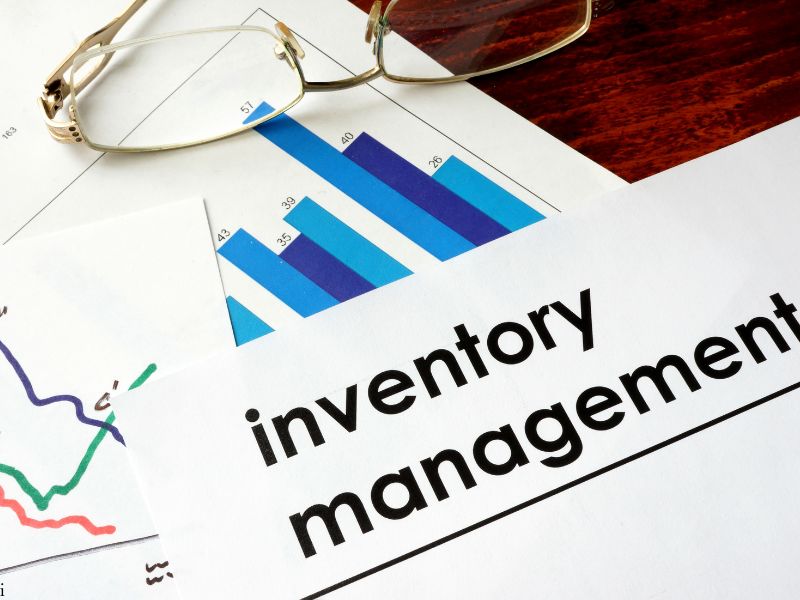This is where inventory management software steps in to save the day, ensuring accurate tracking, reducing waste, and streamlining your operations. If you’re looking for the best solutions to simplify inventory control, here’s a detailed guide to the top tools available in 2025.
What Is Inventory Management Software?

Inventory management software helps businesses organize, track, and optimize their inventory. It ensures you meet customer demands without overstocking or risking shortages. By providing real-time insights and automation, these tools streamline processes, reduce errors, and ultimately enhance your bottom line.
11 Best Inventory Management Software
Kladana
Best for Small and Medium Businesses
Kladana is a cloud-based inventory management solution designed to provide real-time stock tracking and low-stock alerts. With its simple interface, this software is ideal for businesses that need quick insights without dealing with manual checks.
Key Features:
- Tracks inventory in real time.
- Sends automated low-stock alerts.
- Provides detailed sales and trend reports.
Pros:
- Real-time visibility across locations.
- Seamless integration with popular platforms.
- Easy to use and highly efficient.
Cons:
- Advanced features require a learning curve.
- Limited offline access.
Zoho Inventory

Best for Multi-Channel Integration
Zoho Inventory integrates with platforms like Shopify, Amazon, and eBay, making it ideal for businesses with multi-channel sales. It automates reorders and syncs inventory data to provide a unified view.
Key Features:
- Syncs inventory across multiple sales channels.
- Automates order processing and shipping.
- Budget-friendly plans.
Pros:
- Easy integrations with e-commerce platforms.
- Streamlined shipping features.
- Scalable for growing businesses.
Cons:
- Limited advanced reporting features.
- Customization options are restricted.
QuickBooks Commerce (Formerly TradeGecko)
Best for QuickBooks Users
This all-in-one solution links inventory management with accounting, making it a popular choice for businesses already using QuickBooks Online. It simplifies order tracking and customer management.
Key Features:
- Syncs inventory and financial data.
- Tracks B2B and B2C orders.
- Manages product variations and order fulfillment.
Pros:
- Smooth QuickBooks integration.
- Intuitive user interface.
- Excellent for wholesale and retail operations.
Cons:
- Limited customization.
- Higher pricing.
Acctivate Inventory Management

Best for Advanced Tracking
Acctivate is tailored for businesses needing advanced inventory capabilities like lot tracking and multi-warehouse management. It’s ideal for companies using QuickBooks but requiring more robust inventory features.
Key Features:
- Advanced lot and serial number tracking.
- Multi-warehouse management.
- Customizable reporting tools.
Pros:
- Great for regulated industries.
- Seamlessly integrates with QuickBooks.
Cons:
- Setup can be time-consuming.
- Primarily suited for QuickBooks users.
TranZact
Best for Indian SMEs
Built for Indian small and medium enterprises (SMEs), TranZact simplifies inventory, production, sales, and procurement processes. It’s particularly useful for manufacturers aiming to streamline operations.
Key Features:
- Tracks inventory, orders, and production in real-time.
- User-friendly interface.
- Offers a broad range of features at affordable pricing.
Pros:
- Simplifies complex workflows.
- Affordable for SMEs.
Cons:
- Limited external integrations.
NetSuite Inventory Management
Best for Enterprise-Level Businesses
NetSuite, a part of Oracle’s ERP suite, offers powerful tools for inventory optimization, demand forecasting, and supply chain management. It’s ideal for businesses with multi-location inventory needs.
Key Features:
- Real-time visibility across supply chains.
- Advanced forecasting tools.
- Scalable for growing enterprises.
Pros:
- Seamlessly integrates with other Oracle products.
- Robust multi-location tracking.
Cons:
- Expensive for small businesses.
- Complex implementation process.
Fishbowl Inventory
Best for Warehouse and Manufacturing
Fishbowl Inventory is perfect for businesses relying on QuickBooks but requiring enhanced inventory and manufacturing capabilities.
Key Features:
- Tracks stock levels and manages production.
- Includes barcode scanning and order fulfillment.
Pros:
- Affordable for small businesses.
- Tailored for manufacturing and warehouse management.
Cons:
- Outdated user interface.
- Limited scalability.
Odoo Inventory
Best Open-Source Solution
Odoo Inventory offers a flexible and modular approach to inventory management, allowing businesses to customize workflows as needed.
Key Features:
- Open-source platform with extensive customization.
- Automates workflows and stock rules.
Pros:
- Modular design for scalability.
- Integrates seamlessly with other Odoo tools.
Cons:
- Requires technical expertise for customization.
Ordoro
Best for E-commerce Businesses
Ordoro focuses on streamlining order fulfillment and shipping, making it ideal for online retailers managing inventory across multiple sales channels.
Key Features:
- Syncs inventory across platforms like Amazon and Shopify.
- Simplifies dropshipping and kitting.
Pros:
- Excellent multi-channel order management.
- Efficient shipping integrations.
Cons:
- Limited inventory tracking features.
Cin7
Best for Omnichannel Retailers
Cin7 supports businesses managing inventory across multiple platforms and warehouses, with robust automation features for retail and e-commerce.
Key Features:
- Built-in demand forecasting.
- Integrates with retail and warehouse systems.
Pros:
- Advanced automation and multichannel support.
- Unified inventory view.
Cons:
- Time-consuming setup.
Pimberly
Best for Large Product Catalogs
Pimberly specializes in product information management (PIM) and digital asset management (DAM), helping businesses handle large product catalogs efficiently.
Key Features:
- Centralizes product data.
- Enhances product consistency across platforms.
Pros:
- Excellent for managing detailed product information.
- Boosts product data accuracy.
Cons:
- Higher initial investment.
Conclusion
Inventory management software is essential for businesses to maintain efficiency, reduce costs, and improve overall performance. From small businesses needing affordable solutions to large enterprises requiring advanced features, there’s a tool for everyone. Choose the one that fits your operations and take control of your inventory in 2025.
